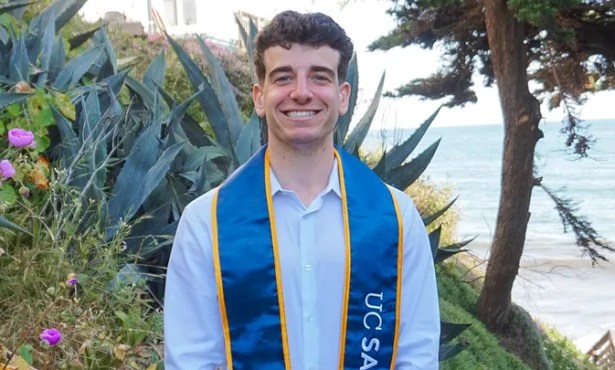Brooks Institute Announces Closure
Fabled Photography School will Shut Its Doors October 31

A mix of stunned disbelief and orchestrated scrambling surrounded the sudden closure late last week of Brooks Institute, a photography, film, and graphic design private college founded 71 years ago in Santa Barbara. On August 11, school officials announced the ousting of President Dr. Edward Clift, prompting most of its Board of Trustees to resign. The next morning at the school’s Ventura campus, a lawyer representing Brooks’s parent company, gphomestay, announced to faculty and staff that doors will close on October 31, citing “changes in economic and regulatory conditions.” The student body was informed a few hours later.
Since then, Brooks administrators and teachers have rallied behind their students, many just a few months shy of graduating. On August 17-18, Brooks hosted a college fair with visiting representatives from Santa Barbara City College, San Francisco’s Academy of Art University, and Pasadena’s ArtCenter College of Design, among others. According to Professor Bill Robbins, the school’s academic units are transferable, and foreign students with active visas will be accommodated, as well: “[Provost Toni Johnson and Registrar April Reyes] are now making arrangements with other schools.”
On August 16, Robbins joined 18 of his graduating students and their friends and family for “a celebration that they stuck with it and made it through” to earn their Bachelor of Fine Arts degree in photography. “It’s awkward for some of them,” he said, “because some of their classmates would have walked this December.”
Reflecting on the sudden shuttering, Robbins opined that “the problem was putting the cart before the horse.” While he appreciated the school’s vision of relocating from its leased campus site, located on unincorporated property off North Ventura Avenue, into the heart of the city’s downtown, the transition might have come easier if it had boosted enrollment numbers first. Earlier this summer, Brooks took on lease agreements with four downtown buildings — two of them owned by the City of Ventura — that would need significant renovations before classes started in the fall. From a certain perspective, according to sources familiar with the school’s ambitious plans, it’s reasonable to see how it became overextended financially.
But that doesn’t entirely explain what happened, said Leigh Eisen, Ventura’s manager of economic development. “Their plan looked good,” she said. “We thought it was a really good fit — integrating into the urban fabric — and we vetted their financials.” Eisen added that Brooks seemed to be making progress toward opening its downtown spaces by the start of classes next month. It was “pretty shocking” to hear of its closing, she said.
The school now owes the city more than $60,000, she said. “We sent a notice of pre-default and demand for cure. And as far as we know, they haven’t paid any of their contactors.”
Jeffrey Burke, a former chair of the school’s Board of Trustees, explained that Brooks had been in trouble for several years, dealing with changes in educational, business, and industry norms. “You don’t necessarily have to have a photography degree to get a job,” he said during a recent conversation with newly resigned Brooks Board of Trustees chair, Frederick Van Johnson, for a forthcoming podcast for Johnson’s This Week in Photo website. Burke added that the founding Brooks family selling to Career Education Corporation (CEC), a for-profit higher-education corporation, in 1999 “was a major turning point,” for better or worse. While CEC did inject Brooks with much-needed capital, he said, “the beginning of the decline” dates to the 2005 multimillion-dollar settlement of a class-action lawsuit alleging that Brooks had increased enrollment by willfully misleading prospective students. CEC also expanded the school’s moviemaking program to a film studio in Ventura while maintaining several sites in Santa Barbara and Montecito. But the school never recovered enrollment drops suffered during the Great Recession, and, according to Burke, “was priced out of Santa Barbara.” Last year, Brooks relocated entirely to its North Ventura Avenue site.
Burke also said that CEC could see the writing on the wall last year, with the coming of new restrictions on for-profit schools and greater protections for students attempting to borrow excessive amounts of money for an education that may not deliver its projected income upon graduation. In June 2015, CEC sold Brooks Institute to gphomestay, a company that specializes in finding homes for international students studying in the United States.
Calls to Brooks administrators were not returned before deadline. Ousted chair Edward Clift and Christine Lin, gphomestay founder and the school’s interim chair, could not be reached for comment.
“The way they are going about this is wrong,” said Ernest H. Brooks Jr., whose father founded the school in 1945. “You don’t just shut the door. It’s a real tragedy. If I wasn’t 82 years old, I’d come back and take it over again.”



